The Role of Intermediaries in Supporting Collaboration for Sustainability: A Model of Commissioning Intervention in the Multi-Stakeholder Collaboration for Sustainable Territorial Development
Abstract
1. Introduction
2. The Intervention of Commissioning for Supporting the Collaboration between Entities that Create Value for Sustainability
3. The Model of Structural and Systemic Development of Commissioning
- interconnection of stakeholders for sustainability (it creates the connection between entities that make demands for development resources and those that launch offers for these resources);
- interconnection of structures at the same territorial level that monitor the same areas of development or complementary areas;
- interconnection of own structures operating at a certain territorial level with counterparts from the same territorial level but different geographical areas (horizontal interconnection);
- interconnection of own structures from a territorial level with counterparts from higher or lower territorial levels (vertical interconnection).
4. The Use of the Model at the National Level
4.1. The Structural Development of the Commissioning System at the City Level
4.2. The Structural Development of the Commissioning System at the Level of Metropolitan Areas and Development Regions
4.3. The Structural Development of the Commissioning System at the State Level
5. Discussion
5.1. Implications
- creating a legislative package regulating the organization, structure, and functioning of the commissioning system, including the relational system between the specific structures;
- organizing an administrative structure at the national level (e.g., the Ministry of Development) to manage the commissioning activity and organize the structure of the system at the territorial level;
- organizing, structuring, classifying, coding, and establishing the methodology for storing the demands and offers of resources by development domains;
- establishing a system for charging the commissioning services;
- starting the bottom-up process of system organization from the local level by designing a computer system of structural interconnection;
- permanently updating the databases in the commissioning structures (demands and offers).
5.2. Future Research Directions
5.3. Concluding Remarks
Author Contributions
Funding
Acknowledgments
Conflicts of Interest
References
- Gray, B. Conditions facilitating interorganizational collaboration. Hum. Relat. 1985, 38, 911–936. [Google Scholar] [CrossRef]
- Gimenez, C.; Tachizawa, E.M. Extending sustainability to suppliers: A systematic literature review. Supply Chain Manag. 2012, 17, 531–543. [Google Scholar] [CrossRef]
- Ayala-Orozco, B.; Rosell, J.; Merçon, J.; Bueno, I.; Alatorre-Frenk, G.; Langle-Flores, A.; Lobato, A. Challenges and Strategies in Place-Based Multi-Stakeholder Collaboration for Sustainability: Learning from Experiences in the Global South. Sustainability 2018, 10, 3217. [Google Scholar] [CrossRef]
- Lozano, R. Proposing a definitionand a framework of organisational sustainability: A review of efforts and a survey of approaches to change. Sustainability 2018, 10, 1157. [Google Scholar] [CrossRef]
- Fobbe, L. Analysing Organisational Collaboration Practices for Sustainability. Sustainability 2020, 12, 2466. [Google Scholar] [CrossRef]
- Curșeu, P.L.; Schruijer, S.G. Participation and Goal Achievement of Multiparty Collaborative Systems Dealing with Complex Problems: A Natural Experiment. Sustainability 2020, 12, 987. [Google Scholar] [CrossRef]
- Cao, M.; Zhang, Q. Supply chain collaboration: Impact on collaborative advantage and firm performance. J. Oper. Manag. 2011, 29, 163–180. [Google Scholar] [CrossRef]
- Fadeeva, Z. Promise of sustainability collaboration—Potential fulfilled? J. Clean. Prod. 2005, 13, 165–174. [Google Scholar] [CrossRef]
- Lozano, R. Collaboration as a path way for sustainability. Sustain. Dev. 2007, 381, 370–381. [Google Scholar] [CrossRef]
- Quarshie, A.M.; Salmi, A.; Leuschner, R. Sustainability and corporate social responsibility in supply chains: The state of research in supply chain management and business ethics journals. J. Purch. Supply Manag. 2016, 22, 82–97. [Google Scholar] [CrossRef]
- Crane, A. Exploring green alliances. J. Mark. Manag. 1998, 14, 559–579. [Google Scholar] [CrossRef]
- United Nations. Transforming Our World: The 2030 Agenda for Sustainable Development. Resolution 70/1 Adopted by the United Nations General Assembly on 25 September 2015. Available online: https://sustainabledevelopment.un.org/post2015/transformingourworld (accessed on 25 April 2020).
- Utting, P.; Zammit, A. United Nations-business partnerships: Good intentions and contradictory agendas. J. Bus. Ethics 2009, 90, 39–56. [Google Scholar] [CrossRef]
- Stibbe, D.; Prescott, D. An Introduction to Multi-Stakeholder Partnerships, the Partnering Initiative, Oxford 2016. Available online: https://thepartneringinitiative.org/publications/research-papers/an-introduction-to-multi-stakeholder-partnerships/ (accessed on 2 May 2020).
- Freudenreich, B.; Lüdeke-Freund, F.; Schaltegger, S. A Stakeholder theory perspective on business models: Value creation for sustainability. J. Bus. Ethics 2019, 154, 1–16. [Google Scholar] [CrossRef]
- Reed, M.S. Stakeholder participation for environmental management: A literature review. Boil. Conserv. 2008, 141, 2417–2431. [Google Scholar] [CrossRef]
- Fritz, L.; Binder, C.R. Participation as Relational Space: A Critical Approach to Analysing Participation in Sustainability Research. Sustainability 2018, 10, 2853. [Google Scholar] [CrossRef]
- Gray, B.; Purdy, J. Collaborating for Our Future: Multistakeholder Partnerships for Solving Complex Problems; Oxford Scholarship Online: Oxford, UK, 2018; ISBN 978-0-19-878284-1. [Google Scholar] [CrossRef]
- Watson, N. Collaborative Capital: A Key to the Successful Practice of Integrated Water Resources Management. In Multi-Stakeholder Platforms for Integrated Water Management; Warner, J., Ed.; Routledge: New York, NY, USA, 2007; pp. 31–48. ISBN 9781138266148. [Google Scholar]
- Verhallen, A.; Warner, J.; Santbergen, L. Towards Evaluating MSPs for Integrated Catchment Management. In Multi-Stakeholder Platforms for Integrated Water Management; Warner, J., Ed.; Routledge: New York, NY, USA, 2007; pp. 259–271. ISBN 9781138266148. [Google Scholar]
- Pugel, K.; Javernick-Will, A.; Koschmann, M.; Peabody, S.; Linden, K. Adapting Collaborative Approaches for Service Provision to Low-Income Countries: Expert Panel Results. Sustainability 2020, 12, 2612. [Google Scholar] [CrossRef]
- Bryson, J.M.; Crosby, B.C.; Stone, M.M. Designing and implementing cross-sector collaborations: Needed and challenging. Public Adm. Rev. 2015, 75, 647–663. [Google Scholar] [CrossRef]
- Seitanidi, M.M.; Crane, A. Implementing CSR through partnerships: Understanding the selection, design and institutionalisation of nonprofit-business partnerships. J. Bus. Ethics. 2009, 85, 413–429. [Google Scholar] [CrossRef]
- Van Tulder, R.; Seitanidi, M.M.; Crane, A.; Brammer, S. Enhancing the impact of cross-sector partnerships: Four impact loops for channeling partnership studies. J. Bus. Ethics 2016, 135, 1–17. [Google Scholar] [CrossRef]
- Savage, G.T.; Bunn, M.D.; Gray, B.; Xiao, Q.; Wang, S.; Wilson, E.J.; Williams, E.S. Stakeholder Collaboration: Implications for stakeholder theory and practice. J. Bus. Ethics 2010, 96, 21–26. [Google Scholar] [CrossRef]
- Sharma, A.; Kearins, K. Interorganizational collaboration for regional sustainability: What happens when organizational representatives come together? J. Appl. Behav. Sci. 2011, 47, 168–203. [Google Scholar] [CrossRef]
- Bryson, J.M.; Crosby, B.C.; Middleton Stone, M. The design and implementation of cross-sector collaborations: Propositions from the literature. Public Adm. Rev. 2006, 66, 44–55. [Google Scholar] [CrossRef]
- Castro, A.P.; Nielsen, E. Indigenous people and co-management: Implications for conflict management. Environ. Sci. Policy 2001, 4, 229–239. [Google Scholar] [CrossRef]
- Seitanidi, M.M. Adaptive responsibilities: Non-linear interactions across social sectors—Cases from cross sector social partnerships. Emerg. Complex. Org. J. 2008, 10, 51–64. [Google Scholar]
- Skelcher, C.; Sullivan, H. Working across Boundaries—Collaboration in Public Services; Palgrave Macmillan: Basingstoke, UK, 2002; ISBN 9780333961506. [Google Scholar]
- Moreno-Serna, J.; Sánchez-Chaparro, T.; Mazorra, J.; Arzamendi, A.; Stott, L.; Mataix, C. Transformational Collaboration for the SDGs: The Alianza Shire’s Work to Provide Energy Access in Refugee Camps and Host Communities. Sustainability 2020, 12, 539. [Google Scholar] [CrossRef]
- Horan, D. A New Approach to Partnerships for SDG Transformations. Sustainability 2019, 11, 4947. [Google Scholar] [CrossRef]
- Van Tulder, R. Business & The Sustainable Development Goals: A Framework for Effective Corporate Involvement; Rotterdam School of Management, Erasmus University: Rotterdam, The Netherlands, 2018. [Google Scholar]
- Schoon, M.; Cox, M.E. Collaboration, Adaptation, and Scaling: Perspectives on Environmental Governance for Sustainability. Sustainability 2018, 10, 679. [Google Scholar] [CrossRef]
- Selsky, J.W.; Parker, B. Cross-sector partnerships to address social issues: Challenges to theory and practice. J. Manag. 2005, 31, 849–873. [Google Scholar] [CrossRef]
- Johnson, V.; Brennan, L. Using infomediaries to build effective networks between business and society. Corp. Gov. 2007, 7, 301–311. [Google Scholar] [CrossRef]
- Gray, B.; Stites, J.P. Sustainability through Partnerships: Capitalizing on Collaboration. Network for Business Sustainability. Available online: http://www.nbs.net/knowledge (accessed on 24 May 2020).
- Tennyson, R. What Do Partnership Brokers Do? In Shaping Sustainable Change: The Role of Partnership Brokering in Optimising Collaborative Action, 1st ed.; Stott, L., Ed.; Routledge: Abington, UK, 2018; pp. 20–34. ISBN 9781783537365. [Google Scholar]
- Howells, J. Intermediation and the role of intermediaries in innovation. Res. Policy 2006, 35, 715–728. [Google Scholar] [CrossRef]
- Hargreaves, T.; Hielscher, S.; Seyfang, G.; Smith, A. Grassroots innovations in community energy: The role of intermediaries in niche development. Glob. Environ. Chang. 2013, 23, 868–880. [Google Scholar] [CrossRef]
- Lee, L. Understanding the Role of the Broker in Business Non-Profit Collaboration. Soc. Responsib. J. 2015, 11, 201–220. [Google Scholar] [CrossRef]
- Bush, R.E.; Bale, C.S.; Powell, M.; Gouldson, A.; Taylor, P.G.; Gale, W.F. The Role of Intermediaries in Low Carbon Transitions–Empowering Innovations to Unlock District Heating in the UK. J. Clean. Prod. 2017, 148, 137–147. [Google Scholar] [CrossRef]
- Hamann, R.; April, K. On the Role and Capabilities of Collaborative Intermediary Organisations in Urban Sustainability Transitions. J. Clean. Prod. 2013, 50, 12–21. [Google Scholar] [CrossRef]
- Stadtler, L.; Probst, G. How broker organizations can facilitate public–private partnerships for development. Eur. Manag. J. 2012, 30, 32–46. [Google Scholar] [CrossRef]
- Hundal, S. The role partnership brokers play in creating effective social partnerships. In Social Partnerships and Responsible Business: A Research Handbook, 1st ed.; Seitanidi, M.M., Crane, A., Eds.; Routledge: New York, NY, USA, 2014; pp. 360–368. ISBN 9780415678643. [Google Scholar]
- Meyer, M. The Rise of the Knowledge Broker by Morgan Meyer. Sci. Commun. 2010, 32, 118–127. [Google Scholar] [CrossRef]
- Manning, S.; Roessler, D. The formation of cross-sector development partnerships: How bridging agents shape project agendas and longer-term alliances. J. Bus. Ethics 2014, 123, 527–547. [Google Scholar] [CrossRef]
- Ward, V.; House, A.; Hamer, S. Knowledge Brokering: The missing link in the evidence to action chain? Evid. Policy 2009, 5, 267–279. [Google Scholar] [CrossRef]
- Tennyson, R. The Brokering Guidebook. Navigating Effective Sustainable Development Partnerships; The Partnering Initiative: London, UK, 2005; ISBN 1899159 10 X. [Google Scholar]
- Geels, F.W. The Multi-Level Perspective on Sustainability Transitions: Responses to Seven Criticisms. Environ. Innov. Soc. Transit. 2011, 1, 24–40. [Google Scholar] [CrossRef]
- Köhler, J.; Geels, F.; Kern, F.; Markard, J.; Wieczorek, A.; Alkemade, F.; Avelino, F.; Bergek, A.; Boons, F.; Fuenfschilling, L.; et al. An Agenda for Sustainability Transitions Research: State of the Art and Future Directions. Environ. Innov. Soc. Transit. 2019, 31, 1–32. [Google Scholar] [CrossRef]
- Mignon, I.; Kanda, W.A. Typology of Intermediary Organizations and Their Impact on Sustainability Transition Policies. Environ. Innov. Soc. Transit. 2018, 29, 100–113. [Google Scholar] [CrossRef]
- Cardillo, E.; Longo, M.C. Managerial Reporting Tools for Social Sustainability: Insights from a Local Government Experience. Sustainability 2020, 12, 3675. [Google Scholar] [CrossRef]
- Jovovic, R.; Draskovic, M.; Delibasic, M.; Jovovic, M. The concept of sustainable regional development—Institutional aspects, policies and prospects. J. Int. Stud. 2017, 10, 255–266. [Google Scholar] [CrossRef] [PubMed]
- Kao, J. Innovation Nation: How America Is Losing Its Innovation Edge, Why It Matters, and What We Can So to Get It Back, 1st ed.; Free Press: New York, NY, USA, 2007; ISBN 978-1416532682. [Google Scholar]
- Wong, C.-Y.; Govindaraju, V.G.R.C. Technology stocks and economic performance of government-linked companies: The case of Malaysia. Technol. Econ. Dev. Econ. 2012, 18, 248–261. [Google Scholar] [CrossRef]
- Nițescu, D.C.; Murgu, V.; Căpriță, E.D. Impact of Labor, FDI and R&D on Business Sustainability. Amfiteatru Econ. 2019, 21, 795–815. [Google Scholar] [CrossRef]
- Nill, J.; Kemp, R. Evolutionary approaches for sustainable innovation policies: From niche to paradigm? Res. Policy 2009, 38, 668–680. [Google Scholar] [CrossRef]
- Yam, R.C.M.; Guan, J.C.; Pun, K.F.; Tang, E.P.Y. An audit of technological innovation capabilities in chinese firms: Some empirical findings in Beijing, China. Res. Policy 2004, 33, 1123–1140. [Google Scholar] [CrossRef]
- Caiado, R.G.G.; de Freitas Dias, R.; Mattos, L.V.; Quelhas, O.L.G.; Leal Filho, W. Towards Sustainable Development through the Perspective of Eco-efficiency—A systematic literature review. J. Clean. Prod. 2017, 165, 890–904. [Google Scholar] [CrossRef]
- Landrum, N.E.; Ohsowski, B. Identifying Worldviews on Corporate Sustainability: A Content Analysis of Corporate Sustainability Reports. Bus. Strategy Environ. 2017, 27, 128–151. [Google Scholar] [CrossRef]
- Cismaru, I.; Petrescu, I.; Dragomir, C.; Cismaru, L. Commissionaireing system internationalization: Certainty vector in sustainable development. Transform. Bus. Econ. 2017, 16, 21–33. [Google Scholar]
- Alfantookh, A.; Haj Bakry, S. Creativity and Innovation in Higher Education Research: Problems and Solutions. Int. J. Knowl. Soc. Res. 2013, 4, 90–107. [Google Scholar] [CrossRef][Green Version]
- Pasher, E.; Ronen, T. The Complete Guide to Knowledge Management: A Strategic Plan to Leverage Your Company’s Intellectual Capital; John Wiley & Sons Inc.: New Jersey, NJ, USA, 2011; ISBN 9780470881293. [Google Scholar]
- Baregheh, A.; Rowley, J.; Sambrook, S. Towards a Multidisciplinary Definition of Innovation. Manag. Decis. 2009, 47, 1323–1339. [Google Scholar] [CrossRef]
- Brehmer, M.; Podoynitsyna, K.; Langerak, F. Sustainable business models as boundary-spanning systems of value transfers. J. Clean. Prod. 2018, 172, 4514–4531. [Google Scholar] [CrossRef]
- Bocken, N.M.P.; Short, S.W.; Rana, P.; Evans, S. A literature and practice review to develop sustainable business model archetypes. J. Clean. Prod. 2014, 65, 42–56. [Google Scholar] [CrossRef]
- Pedersen, E.R.G.; Gwozdz, W.; Hvass, K.K. Exploring the relationship between business model innovation, corporate sustainability, and organisational values within the fashion industry. J. Bus. Ethics 2018, 149, 267–284. [Google Scholar] [CrossRef]
- Despotovic, D.; Cvetanovic, S.; Nedic, V.; Despotovic, M. Economic, social and environmental dimension of sustainable competitiveness of European countries. J. Environ. Plan. Manag. 2016, 59, 1656–1678. [Google Scholar] [CrossRef]
- Shao, G.; Li, F.; Tang, L. Multidisciplinary perspectives on sustainable development. Int. J. Sustain. Dev. World Ecol. 2011, 18, 187–189. [Google Scholar] [CrossRef]
- European Commission. Corporate Social Responsibility, National Public Policies in the European Union, Compendium. 2014. Available online: https://ec.europa.eu/digital-single-market/en/news/corporate-social-responsibility-national-public-policies-european-union-compendium-2014 (accessed on 22 May 2020).
- Gagne, R.L. Accountability and public administration. Can. Public Adm. 1996, 39, 213–225. [Google Scholar] [CrossRef]
- Medeiros, E. Portugal An Effective Policy Platform to Promote Sustainable Territorial Development? Sustainability 2020, 12, 1126. [Google Scholar] [CrossRef]
- Longo, M.C. Social Entrepreneurship and Management Tools. In Insights and Emerging Issues on Value Sharing among Firms and Public Organizations; Giappichelli: Torino, Italy, 2018; ISBN 978-88-9211438-8. [Google Scholar]

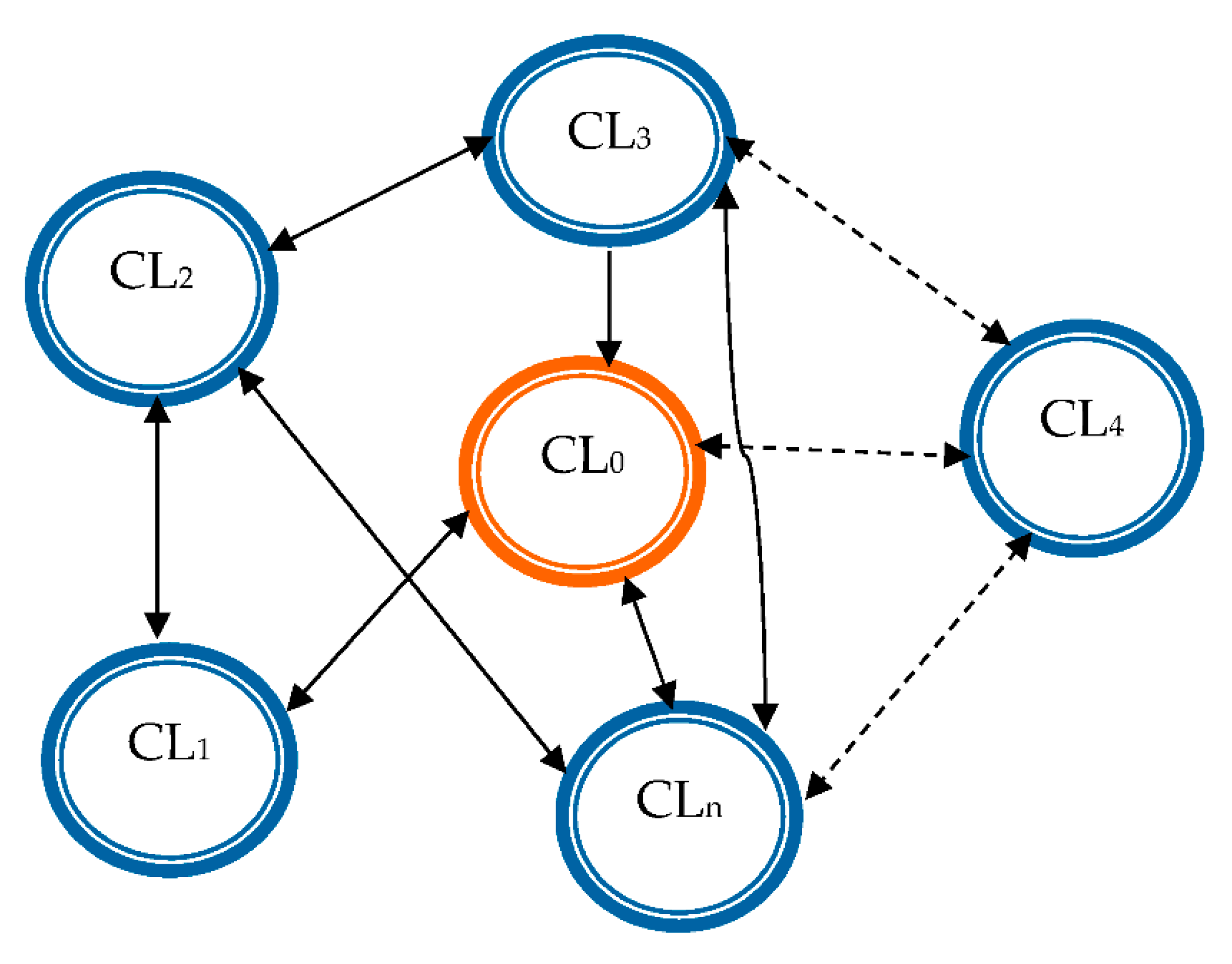
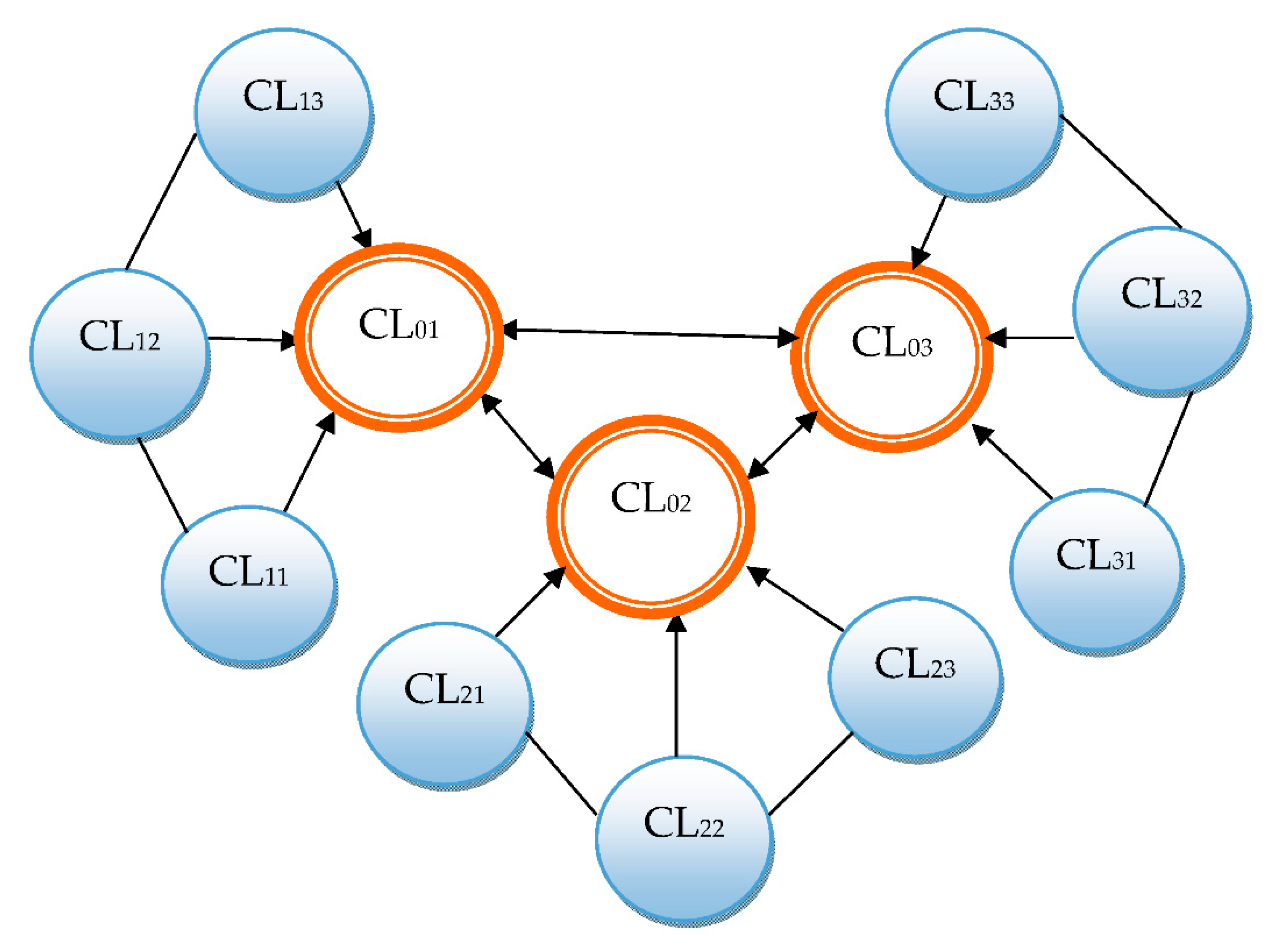
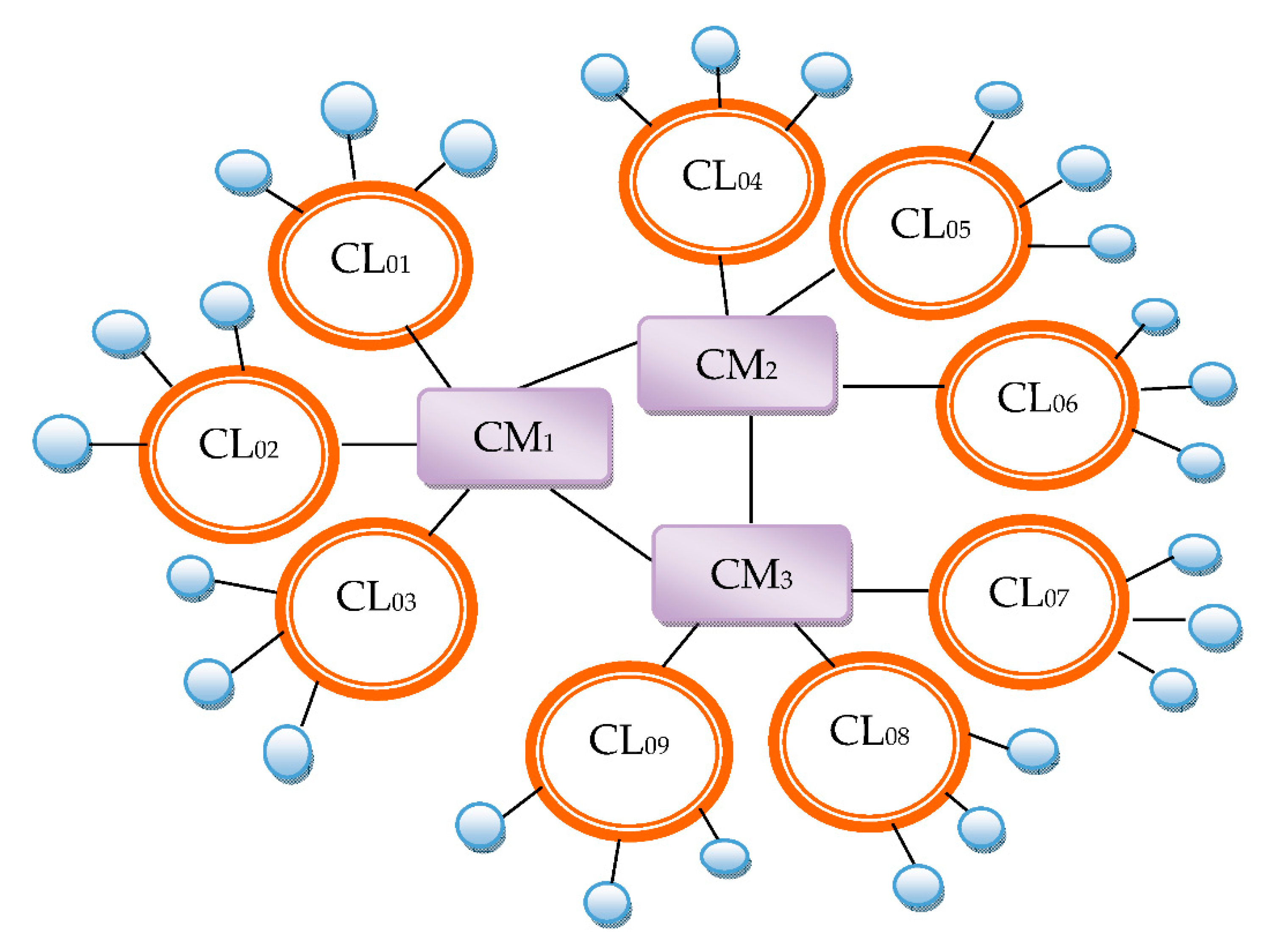
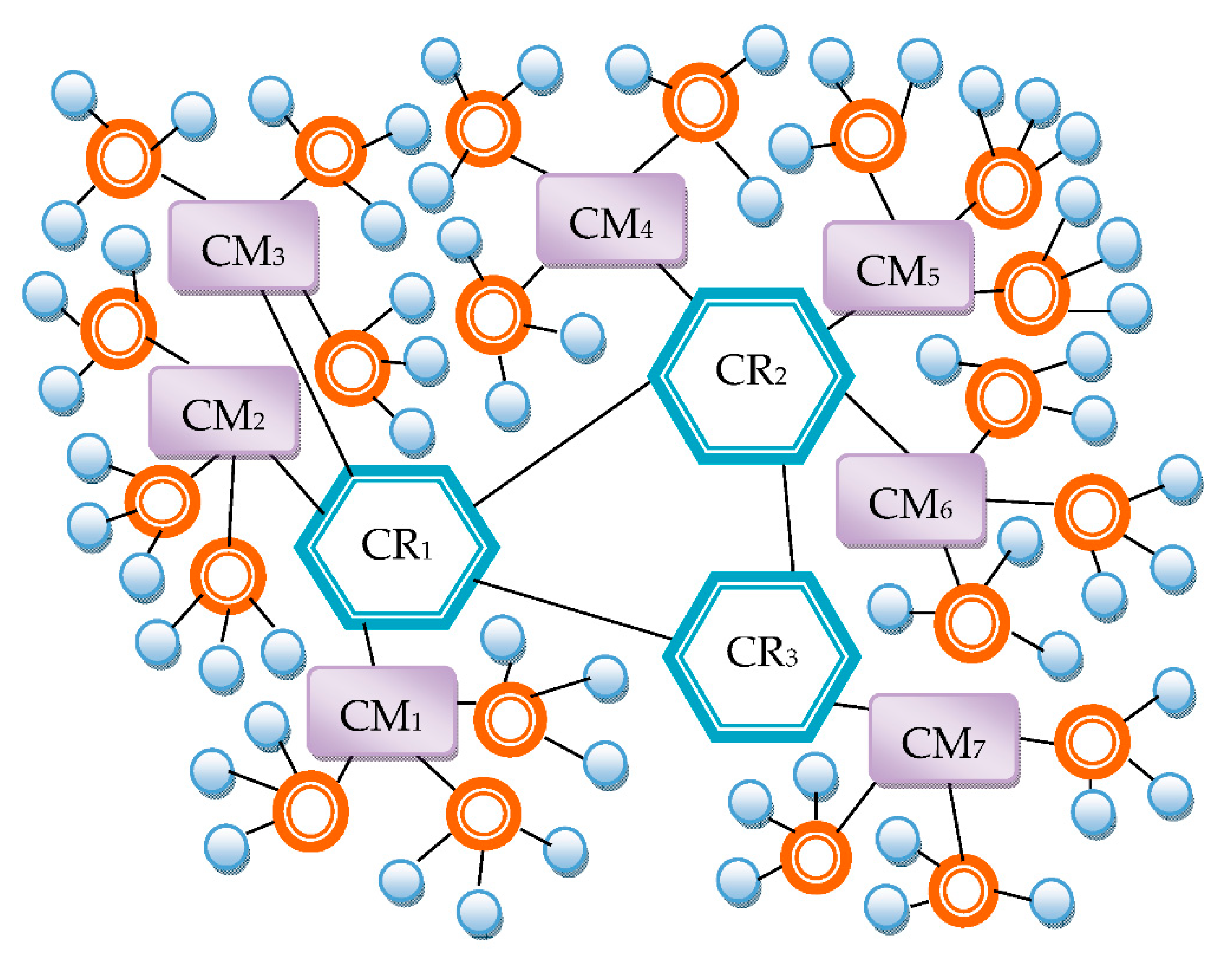
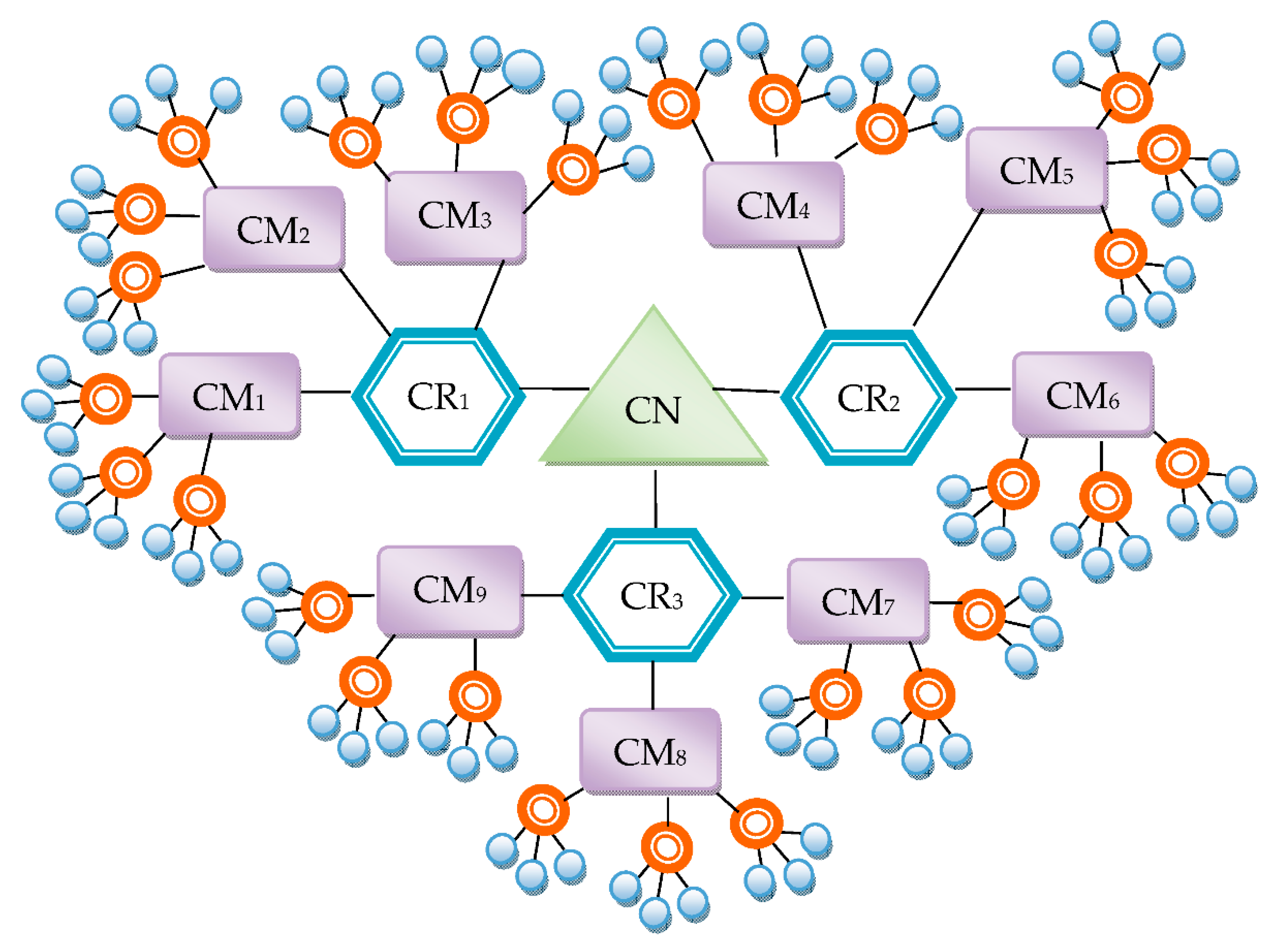
© 2020 by the authors. Licensee MDPI, Basel, Switzerland. This article is an open access article distributed under the terms and conditions of the Creative Commons Attribution (CC BY) license (http://creativecommons.org/licenses/by/4.0/).
Share and Cite
Dragomir, C.-C.; Foriş, D.; Ţîţu, A.M.; Foriş, T. The Role of Intermediaries in Supporting Collaboration for Sustainability: A Model of Commissioning Intervention in the Multi-Stakeholder Collaboration for Sustainable Territorial Development. Sustainability 2020, 12, 6769. https://doi.org/10.3390/su12176769
Dragomir C-C, Foriş D, Ţîţu AM, Foriş T. The Role of Intermediaries in Supporting Collaboration for Sustainability: A Model of Commissioning Intervention in the Multi-Stakeholder Collaboration for Sustainable Territorial Development. Sustainability. 2020; 12(17):6769. https://doi.org/10.3390/su12176769
Chicago/Turabian StyleDragomir, Camelia-Cristina, Diana Foriş, Aurel Mihail Ţîţu, and Tiberiu Foriş. 2020. "The Role of Intermediaries in Supporting Collaboration for Sustainability: A Model of Commissioning Intervention in the Multi-Stakeholder Collaboration for Sustainable Territorial Development" Sustainability 12, no. 17: 6769. https://doi.org/10.3390/su12176769
APA StyleDragomir, C.-C., Foriş, D., Ţîţu, A. M., & Foriş, T. (2020). The Role of Intermediaries in Supporting Collaboration for Sustainability: A Model of Commissioning Intervention in the Multi-Stakeholder Collaboration for Sustainable Territorial Development. Sustainability, 12(17), 6769. https://doi.org/10.3390/su12176769





